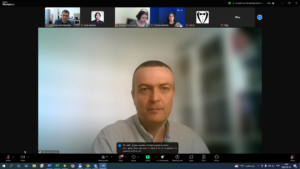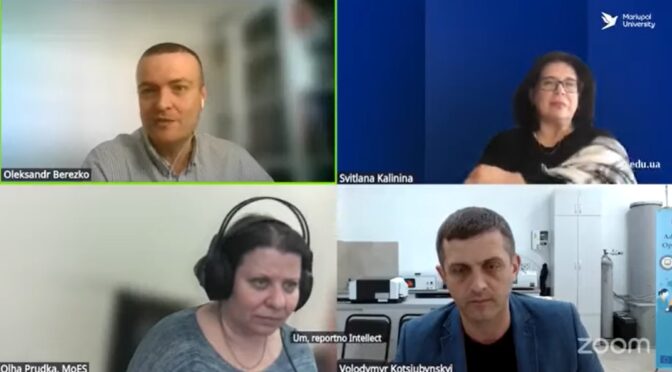As part of the Open Government Week 2025, an online discussion titled “Open Data in the Age of AI: From Science to Public Governance” was held. The event was organised by the Open4UA project with the support of the Ministry of Education and Science of Ukraine and the Erasmus+ programme, and featured the participation of the team from the Advanced Materials Open Science Centre at the Precarpathian National University.
The event brought together over 40 participants – representatives of the academic community, government bodies, civil society organisations, and the IT sector – to discuss the potential of open data in the context of digital transformation and the rapid development of artificial intelligence (AI).
The discussion focused on key concepts:
-️ Open data as public information in a machine-readable format, available without restrictions and enabling the creation of new services;
️- Open science, based on the principles of transparency, accessibility, and reproducibility of research;
️ -Open government, which promotes accountability, transparency, and evidence-based decision-making;
-️ FAIR data, which complies with international standards – Findable, Accessible, Interoperable, Reusable – and is especially valuable for training AI models.
Special attention was paid to the Ukrainian context:
– Since 2015, the open data sector in Ukraine has been actively developing, with the launch of the national portal gov.ua, now containing over 38,000 datasets;
– Ukraine ranks 3rd among European countries in terms of open data policy maturity, despite the challenges posed by the full-scale war;
– Over 13.9 million Ukrainians use open data-based services monthly (e.g. Open Databot, YouControl, Easyway);
– In the scientific domain, data openness is still less developed but holds significant potential for advancing AI.
During the event, it was emphasised that open scientific data could become a driving force for developing Ukrainian-language and analytical AI models, particularly in light of the demand for Ukrainian-language data. Sources such as the State Register of Court Decisions, scientific research archives, and data from university repositories could serve as a foundation for future breakthroughs in AI.
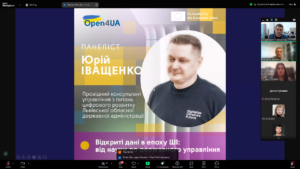
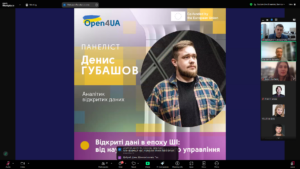
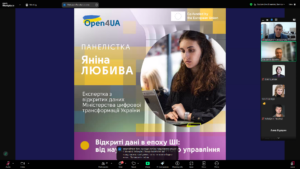 Speakers also highlighted the importance of balancing openness with national security during wartime, the need to improve legislation on access to information, and the role of data stewards within government institutions and communities. At the same time, thanks to the growth of open data and cross-sector collaboration, Ukraine has the opportunity to strengthen its position in scientific research, digital technologies, and public governance.
Speakers also highlighted the importance of balancing openness with national security during wartime, the need to improve legislation on access to information, and the role of data stewards within government institutions and communities. At the same time, thanks to the growth of open data and cross-sector collaboration, Ukraine has the opportunity to strengthen its position in scientific research, digital technologies, and public governance.